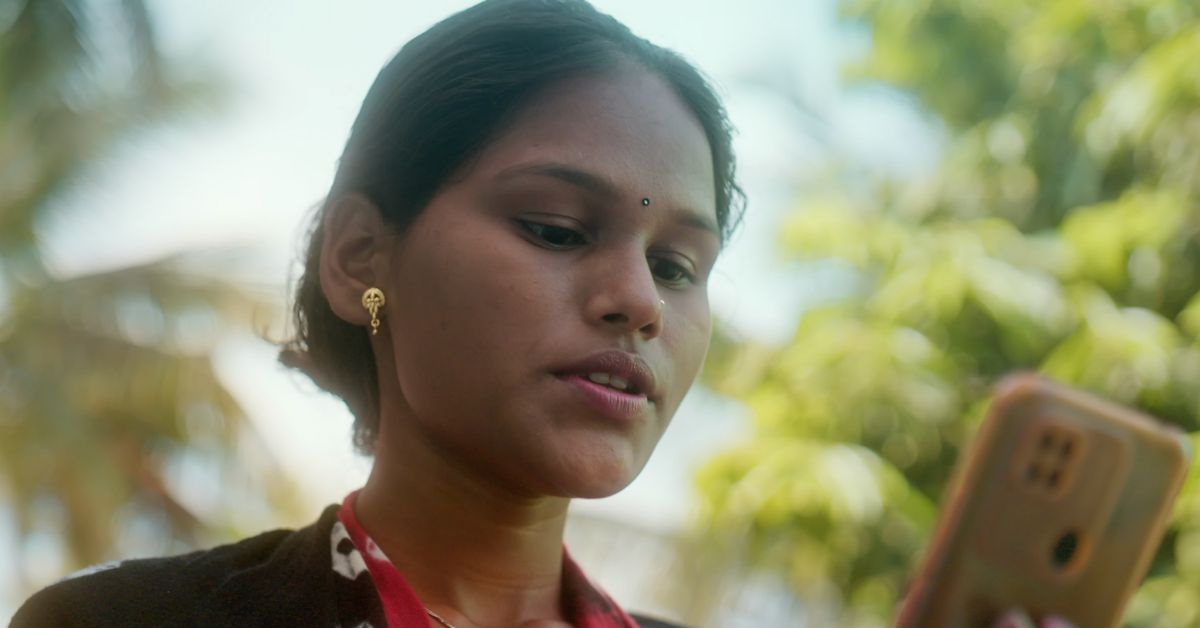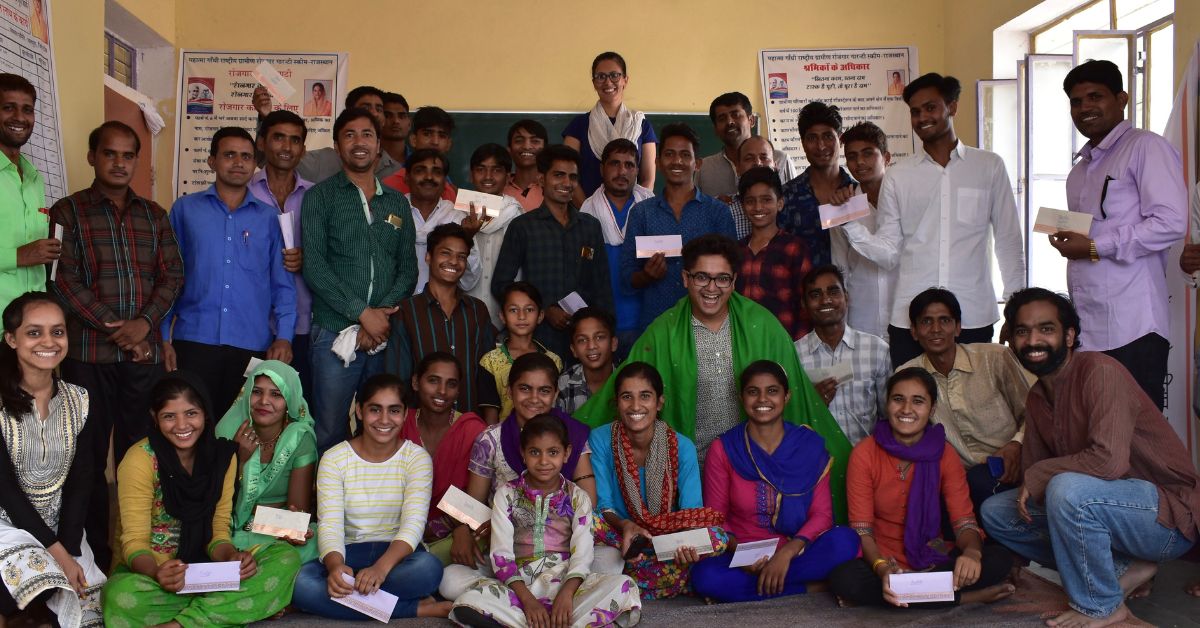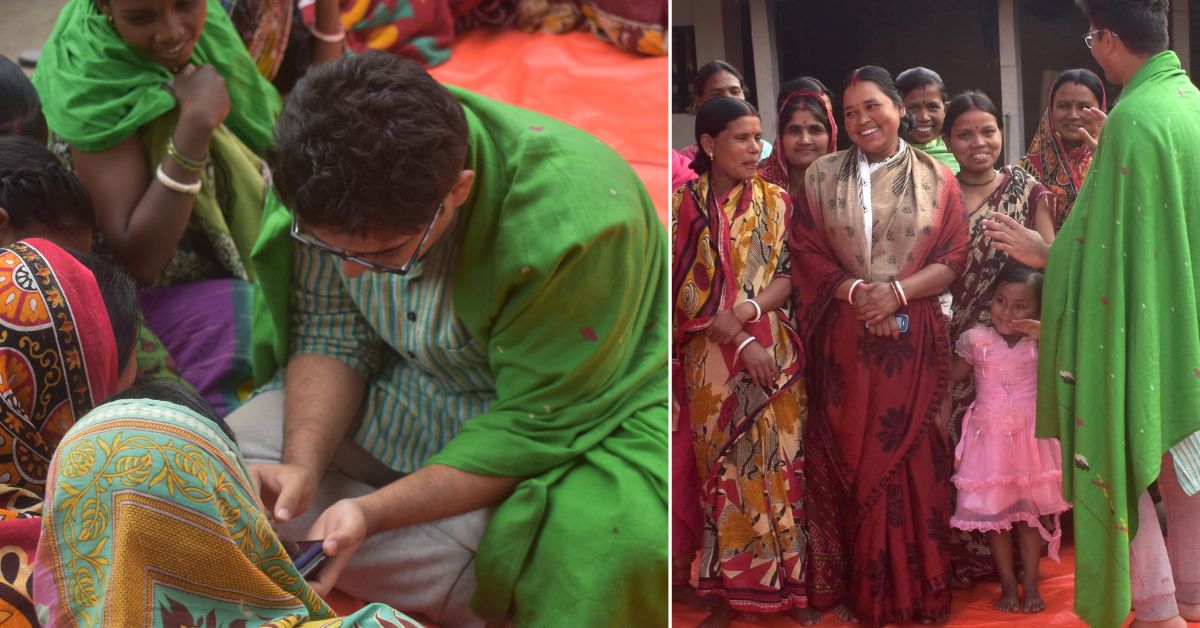In the small village of Raghurajpur in Odisha, vibrant colours and intricate artistry fill every corner. This charming place, also called ‘Raghurajpur Art Village’, is famous for its Patachitra painters, whose detailed artwork decorates the village and attracts visitors from all around.
Although their art is greatly admired, the village artisans have struggled with poverty for a long time.
Swarnalata Nayak, a resident of this artisan community, spent her early married life looking after her in-laws and children. Wanting to send her children to a good school, she decided to join her husband in the craft work. “The money coming into the house was not enough to send my children to a good school. However, even after the two of us started working together, we were still not able to afford the fees,” she tells The Better India.
The toil and dedication of these artisans are often met with meagre wages. Swarnalata explains, “The wages can plummet as low as Rs 1,000 a month, which is hardly enough to make ends meet.” Balancing household chores and contributing to her husband’s craftwork had become increasingly taxing for Swarnalata.
But then something changed. “It was a friend who introduced me to the Karya Project and suggested I get involved. The work is quite simple; all I have to do is speak in Odiya on my phone, it gets recorded, and then I get paid!” Swarnalata informs that she was paid Rs 4,000 after working for just one week.
Established in 2021 by Manu Chopra and Vivek Seshadri, with Safiya Husain joining a year later, the Bengaluru-based Karya Project uses artificial intelligence (AI) to help rural Indians find respectable work. Workers use the ‘Karya’ app to record audio in their native languages.
What is the Karya Project?
Specialised AI, like large language models like Chat GPT, primarily uses English due to the abundance of text and audio data available. However, there is a growing need for databases containing languages spoken in India other than English.
For instance, if Chat GPT were to operate in Kanada, the AI would require a substantial amount of audio and text data for analysis.
The Karya Project steps into this role by collecting and selling such data in different languages to its clients. However, what sets the project apart is not its novelty or uniqueness, but its nonprofit model. After covering its costs, the profits from these sales are channelled directly into the accounts of the workers, Manu informs.

“Our project aims to do more than just offer respectable jobs, as implied by its name. It also strives to give rural Indians the chance to get out of poverty and lead improved lives,” says Manu Chopra, the co-founder.
Explaining how the startup works, Manu says, “We give data service to companies. Let’s say that Microsoft wants to build some AI in Marathi and it asks Karya to sell 10,000 hours of audio data to them. We would break this huge task into micro tasks and distribute them among people in rural India.”
“For the workers on the ground, they simply have to download the Karya application and read out sentences written in Marathi. We then combine these and sell it to the company,” he says.
“To encourage the workers, we pay them as soon as they come with the work. They do not have to put in a certain number of hours of work to get paid. They can simply work for a few hours in the day and get paid instantly for it,” he informs.
“The work is designed to be so simple, that anyone can pick it up. They do not need any kind of recording space or anything to do so. Let’s say there is a car moving in the background, it’s no issue, or there is a cow mooing in the background, even better! The companies want the data recorded in a natural environment,” he explains.
Swarnalata Nayak, who records her voice in Odiya language, says, “The work is straightforward and can be done from anywhere. After finishing my household chores, I assist my husband, and in the evenings when I have free time, I use my phone to record my voice for Karya. They pay me right away,” she says.
‘Dignified work’ for people in rural India
This unique startup took nearly four years of research to become what it is today.
“When I came to Bengaluru in 2017, I met my co-founder Vivek Seshadri. We were involved in research at Microsoft Research and he was my manager there. It is where we both came up with the idea of Karya,” he says.

While Vivek and Manu look at the logistics and technology side of the work, Manu informs that they found a third co-founder to look at the impact side of the business. “Karya was always supposed to be a people’s business, and with Safiya Husain joining us, we were able to achieve our goal of helping people from rural India,” he says.
Explaining how Karya reaches out to people for a particular project, he says, “In the areas that we have never worked before or even initially, when no one knew what we did, we collaborated with NGOs to help us reach the people who could really benefit from Karya. We presently have a network of 200 NGOs across the country that connect us with people.”
With only three years in business, the company has made a substantial impact. So far, they have worked with 32,000 rural Indians in 22 states, such as Maharastra, Karnataka, and Gujarat.
“Our workers have completed 35 million hours of paid data. We have collaborations with companies such as Microsoft and Google, foundations such as GATE and USAIG, and several state governments and academia like Stanford and IITs,” says Manu.

Reflecting on his journey so far, Manu says, “We have found that a lot of our workers take pride in doing this work as they are teaching computers their language — the language that they grew up speaking and the language they take pride in speaking. This is exactly what we aimed for — giving them dignified work that pulls them out of poverty. We are currently paying 50 percent more wages to our workers than the industry. But we are doing so sustainably, and are not losing money in the process,” he says.
As for the future, the startup is looking to reach and help seven million people by 2030. “Indians are incredibly talented and hardworking people, and I am very sure that we can reach this goal,” he says.
Find this work interesting and can think of someone who can benefit from it? Check their website here for more information.
No comments:
Post a Comment